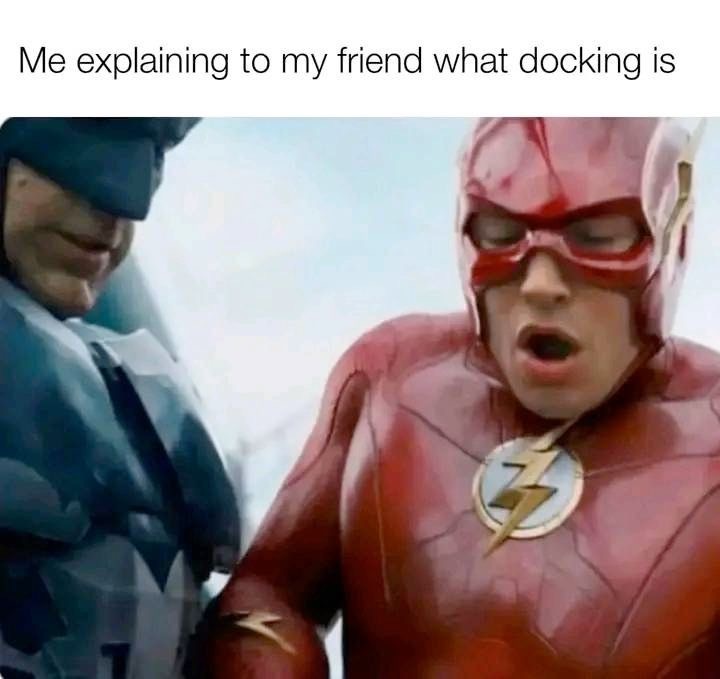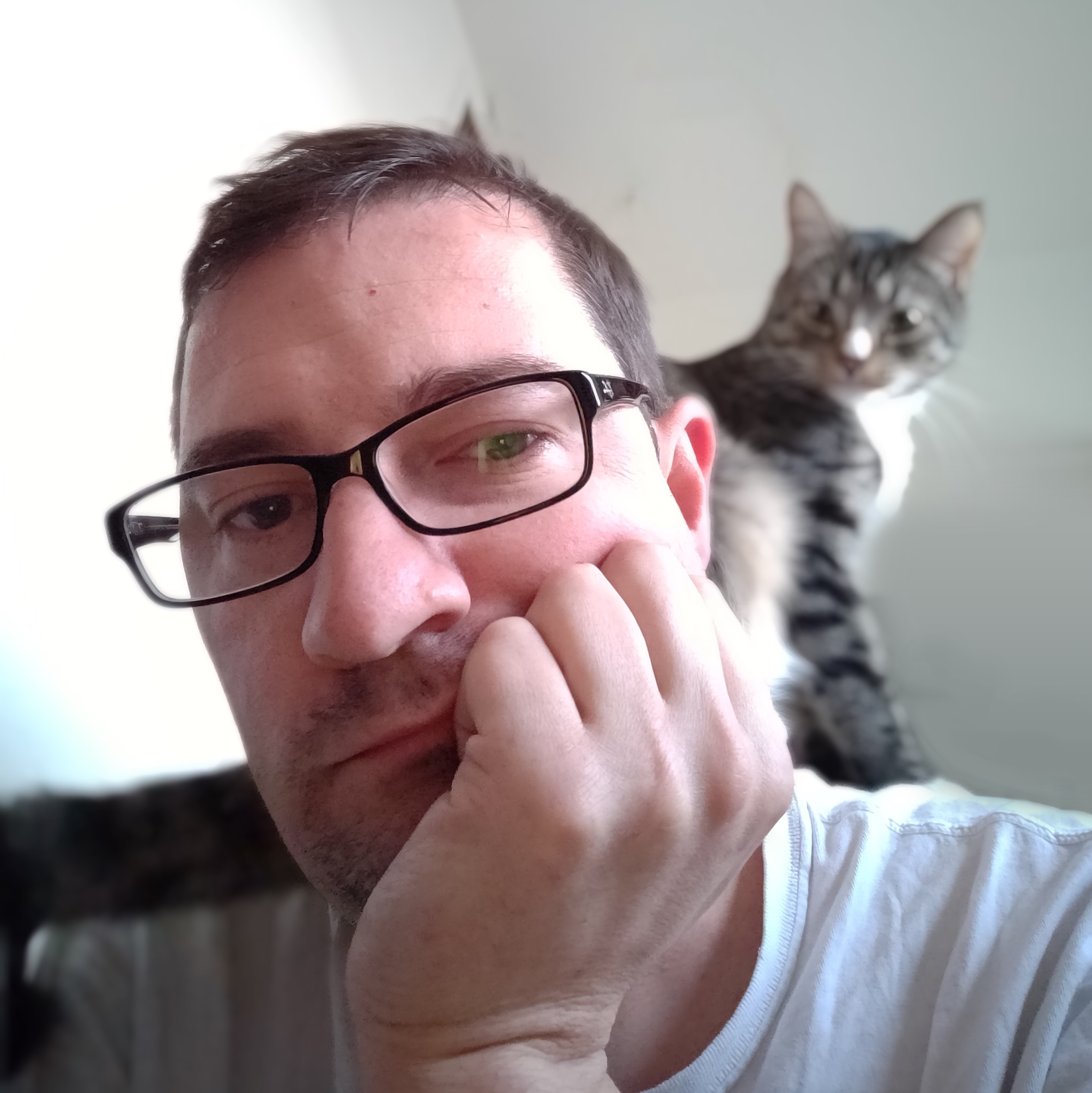Mine is beaverhabits, just a good habit app that has come out recently.

Yeah, combines with beaverhabits, for all around fun action.
Have you tried beaver docking? I really like it. I just learned of it recently and do it everyday. Better than a lot of other docking.
Hmm, not sure if it’s lesser known, but Actual Budget is pretty neat. I pay for SimpleFIN to get transactions and whatnot, and it has been awesome to keep track of my finances.
I bounced off of Actual when I realized how clunky its goal templating is. I want to be able to have all my categories fill in a single click but the goal templates are hidden behind an experimental feature.
Yeah, it’s not perfect, but it works well enough to get what I wanted: see unexpected expenses from my vast array of credit cards. I’ve caught fraudulent transactions my bank didn’t, so that’s nice.
I don’t actually do strict budgeting with it, I mostly just want to see generally where our money is being spent, and I prefer to keep those transactions as private as possible (well, outside of my banks selling my transaction data to data brokers, that is…).
Ah. Yeah I’m trying to find an alternative to YNAB since they keep upping their annual fees but the service works so well for me that the price is probably worth it anyway.
Yup, probably.
But hey, there are free options (Actual and Firefly), so there’s no harm in trying them out. If you can replicate your setup in YNAB, you might just save yourself some money. But definitely don’t ditch it until you’ve gotten everything set up first.
Did you try Firefly as well? Why AB? Thanks for the recommendation and SimpleFIN looks great.
Firefly
Nope. I found AB and saw that they had experimental support for SimpleFIN, which supports financial institutions in my country (USA), and it was cheaper than my old, non-selfhosted solution (Tiller). SimpleFIN provides a pretty simple API, so there’s no reason Firefly couldn’t support it as well (and there’s an issue for it).
I also really hate PHP, so the fact that Actual Budget is written in node.js is a plus.
Not useful on its own but https://sablierapp.dev/ was really useful for me in getting back resources from some of the heavyweight containers I use. For those unfamiliar with it, Sablier can stop containers that go idle and then spin them back up automatically when a request comes in. It requires Traefik, NGINX, or Caddy running always so it could complicate your server but for me I couldn’t do without it.
This sounds quite interesting!
I believe this can integrate with various reverse proxies and trigger on-demand?
Right. When a request comes in, Traefik, for one, will hold the connection until the service is back up then forward the request as usual. This works for UIs as well. You’ll get a temporary loading page then redirected to the requested UI when the service is up.
So would this work well e.g. with the the *arr stack? Because most of the services wouldn’t even need to run always
It probably would work well with those as long as the startup time was quick (my containers come up almost instantly) and the initiating clients can handle a bit of latency. I didn’t notice any hiccups in my use at all.
How would the timed tasks be handled if they’re offline
https://github.com/modem7/docker-rickroll
There are also variations on this that play ASCII Star wars and modified versions of the song that are terrible on purpose.
I set this as the admin login link to my docker system just in case somebody manages to infiltrate my network.
Webtop. Lightweight Linux VMs but in Docker.
I use https://ntfy.sh/ for a lot of stuff and I don’t see anyone talk about it. I recently wrote a container to poll RSS feeds and send push notifications via ntfy https://github.com/chunkystyles/rssToNtfy
https://gitlab.com/Nulide/findmydeviceserver, a FOSS and self-hosted alternative to location history. Particularly useful for finding my device which has no Google services on it.
sorry what, it can keep a location history? how?
You need to install the client from F-Droid and it periodically polls your device for its location.
sorry what, it can keep a location history? how?
Hoarder. It is bookmark management with AI tagging. Tags are amazing when you don’t have to assign them yourself.
Tabs were the worst invention in the world for those of us with ADHD
Cool, but is there any reason to use this over Searx?
No, mostly because Google Search is just terrible. The app itself is great.
At least with Searx you can search multiple private search engines (your preference) at once. You can also selfhost it.
KitchenOwl - Smart Shopping List & Recipe Manager - paste any online recipe (including YouTube) and it will add the missing ingredients to your shopping list.
N8N - IFTTT/Zapier alternative visual scripter with NodeRed touch. Has integrations with thousands of APIs.
Not directly a docker image but Obsidian LiveSync, an Obsidian plugin that uses a self-hosted CouchDB or Object storage to replicate official Sync.
Why did you pick N8N over Node-RED?
Haven’t tried node, so I’m interested to hear as well, but n8n is super easy to set up, and I like the interface.
I’ve looked at node multiple times in the past, and I remember finding no reason to switch.Node-RED requires enough technical knowledge that it becomes not easier, but harder than writing JS code when things go medium size. N8N is superior in UX.
Also although I greatly appreciate everyone’s efforts, I don’t want to rely on community plugins that require maintenance and may or may not abandoned after it’s developer loses interest/move on with their life. TBH NPM is brimming with those.
N8n just got 50k stars on github
Yeah, businesses went big in N8N but home users are somehow unaware of it. It even has Home Assistant integration.
Seconding Obsidian LiveSync. Fabulous plugin + container
Is grocery tracking good enough to use owl over Mealie?
https://github.com/jlesage/docker-firefox
Having a browser in a browser is surprisingly useful.
Does anyone have a guide or tutorial that can help me make sense of what everyone is talking about here?
well, i could just link you to docker’s documentation, but that’s not super helpful. The tldr is that docker is a way of distributing/running software you run on servers.
What do you want to do? Do you just want to learn, or do you want to set something up?
I think my most obscure one is “Homarr”, which as the name suggests is a dashboard designed with the *arr suite in mind, but I use it as a regular dashboard for my regular services.
OpenBooks - Easily download/pirate books.
uLogger - Logging my travel and rides.
Adminer - GUI frontend that can access multiple databases.
Minimalist-Web-Notepad - A simple notepad for quick notes and lists.
PlantUML-Server: Github / Docker Hub I do use some plantuml graphics in my Obsidian notes to document my network setup. And it’s really nice to have a self hosted renderer where all my devices can access it.
UnifiBrowser Github / Docker Docker Image to access the Unifi API, helped a lot to debug the integration of Unifi data into other tools (e.g. Munin)
Wanderer Github - Platform to save and upload gps tracks. I do misuse it as a platform for my motorbike tour ‘library’ for easy choice which tour I want to do









